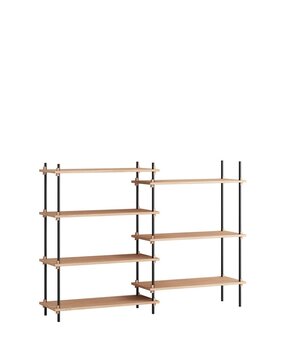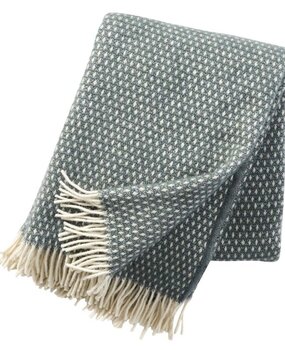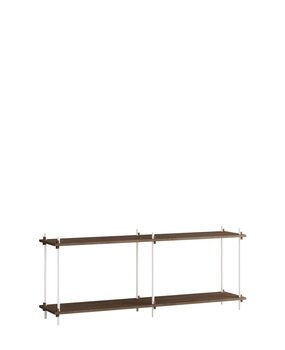Lovi wooden balls Ø6cm set of 4 Dark Green - birch wood DIY package


A beautiful set of 4 wooden Christmas balls in the format Ø6cm from LOVI. The set is suitable for any tree, but if you have a wooden tree from Lovi itself, they fit best in a tree of 100-200cm high. The balls are made of Finnish Birch plywood and are easy to assemble. First of all, press all parts out of the pre-punched wooden card. Based on the clearly illustrated description, you can easily assemble it without tools (without glue or the like).
Replanting
Wood is one of nature's finest and most versatile renewable materials. Trees care for us by taking up carbon and releasing oxygen into the air. At the same time they help prevent global warming.
Lovi products are made from Finnish birch plywood. In Finland there is a very strict forest policy. It means that new trees are planted immediately after felling. Today, northern forests are growing faster than being cut.
Lovi hopes that one day the same will apply all over the world. To make this possible, they donate part of their income to replanting projects in parts of the world affected by drought, erosion and flooding. Planting is done in collaboration with the local population, always taking local conditions and tree species into account.
Since 2009, LOVI has planted more than 55,000 trees, approximately 5,000 trees per year. The trees have been planted in partnership with Finn Church Aid.
LOVI
Lovi is a family business based in Northern Finland. They produce flat packed 3D figures from wood, designed and patented by Anne Paso. The products are 100% made in Finland and made from the highest Finnish quality, environmentally friendly birch plywood. The products are assembled by hand without tools. The smallest Lovi products are envelope size and easy to ship. The beautiful Lovi shapes that cleverly fit together create a sense of wonder as they take shape and come to life. All with the added satisfaction of working with your hands
Anne Paso - Finnish designer
“I wanted to make a wooden Christmas ball in 2001 as an alternative to plastic Christmas trees. The very first version was a stick with veneer pieces glued to it. I quickly realized it had to be a 3D puzzle so that the end user is the one who has the satisfaction of putting it together. A new type of connection made the idea feasible because the pieces fit together easily. The package was then given postcard-like packaging and the product was ready to ship. The very first samples were shipped around the world as seasonal greetings in 2003. "

















